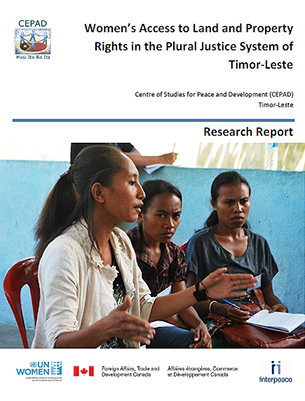Women’s Access to Land and Property Rights in the Plural Justice System of Timor-Leste
The Centre of Studies for Peace and Development (CEPAD) with support from UN Women, conducted participatory action research over a period of 12 months in order to examine women’s access to justice in the plural legal system of Timor-Leste with a focus on women’s rights to land and property.








